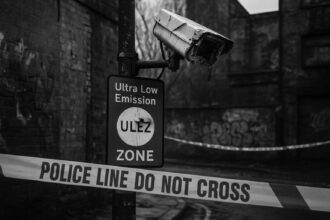Maids Moreton residents are campaigning against a proposed 43% population increase due to 153 new homes, citing inadequate sewage capacity and risks of pollution to the River Great Ouse. The dispute highlights escalating infrastructure challenges faced by rural communities amid rapid housing expansion across Buckinghamshire and neighbouring counties.
Residents of Maids Moreton, a rural village near Buckingham, are expressing significant outrage over plans to construct 153 new houses without adequate improvements to the already strained sewage system. With the village comprising just 350 homes, the proposed development represents a substantial 43% increase in population, raising immediate concerns regarding the village’s waste management capabilities. Local infrastructure has struggled for years, and residents fear that the existing sewage works, which have been operating at or near capacity, lack the necessary upgrades to handle additional effluent, particularly as untreated sewage risks entering the nearby River Great Ouse.
The issue underscores a broader dilemma faced by rural communities across Buckinghamshire and Aylesbury Vale, where similar developments are prompting fears of overwhelmed sewage systems. For instance, in Aylesbury Vale, plans for 420 new homes have ignited worries about increased flooding and pressured healthcare services, with Anglian Water admitting that their sewage works is at capacity. While the water company indicates that they could expand capacity if developments proceed, residents are demanding clarification on how these challenges will be met.
Council officials have begun to take action, recognising the urgent need for legislative changes that empower local authorities to impose stricter planning conditions on developments. Buckingham Town Council has reached out to the Secretary of State, advocating for new regulations that would enable them to mitigate issues arising from the Water Industry Act 1991. This act compels water companies to connect all new developments to public sewers, regardless of existing capacity issues, placing local councils in a difficult position when attempting to address community concerns.
Similar circumstances are emerging across the county, with numerous campaigners questioning whether existing sewage treatment facilities can accommodate the anticipated influx of residents from new housing projects. Reports indicate that Thames Water has acknowledged the necessity for upgrades but has not committed to a clear timeline for these enhancements. Recent sewage spills in surrounding areas have compounded worries about potential pollution and the viability of the local water systems.
The Environment Agency has also recently objected to a proposal for 1,450 new homes in Oxfordshire, citing the inability of already overstressed sewage treatment works to handle further inflow. With the agency revealing that Thames Water has been operating illegally since 2017 due to capacity issues, there is rising pressure for developers to ensure infrastructure improvements are completed before progressing with new builds.
As residents of Maids Moreton continue their campaign against the development, the situation serves as a cautionary tale for communities grappling with rapid growth and infrastructure limitations. Advocates for sustainable development are calling for a more responsible approach to housing projects, one that fully considers the capabilities of essential services like sewage treatment. The outcome in Maids Moreton could set a significant precedent for similar rural areas facing the dual challenges of housing demand and inadequate infrastructure.
Reference Map:
- Paragraph 1 – [1]
- Paragraph 2 – [2], [3]
- Paragraph 3 – [3], [4]
- Paragraph 4 – [5], [6]
- Paragraph 5 – [7]
Source: Noah Wire Services
- https://www.express.co.uk/news/uk/2061281/Maids-Moreton-sewage-new-homes – Please view link – unable to able to access data
- https://www.bucksherald.co.uk/news/people/could-new-housing-development-in-aylesbury-vale-overwhelm-sewage-system-3495462 – Residents in Aylesbury Vale have raised concerns that a proposed housing development of 420 new homes could overwhelm the existing sewage system. The Buckingham Society has expressed worries that the development could lead to increased flooding and strain on healthcare services. Anglian Water has stated that the sewage works is currently operating at capacity but additional capacity will be provided if permission is granted. The Buckingham Society is seeking assurance on how these issues will be addressed before work begins.
- https://www.bucksherald.co.uk/news/politics/council/sewage-capacity-matters-4510218 – Buckingham Town Council has highlighted the importance of ensuring that new developments do not overwhelm existing drainage systems. The council has written to the Secretary of State to request new legislation that would allow local authorities to impose planning conditions to resolve conflicts within the Water Industry Act 1991. This act obligates water companies to connect all new developments to public sewers, regardless of capacity issues, making it difficult for local authorities to refuse planning permission on these grounds.
- https://www.bucksfreepress.co.uk/news/14705657.can-faltering-sewage-system-cope-with-thousands-of-new-homes/ – Campaigners in Buckinghamshire are concerned that the county’s sewage system may not be able to handle the influx of thousands of new homes. Recent incidents, such as sewage spills in Bourne End, have raised questions about the capacity of treatment works like Little Marlow Treatment Works. Thames Water has acknowledged the need for upgrades to accommodate further development but has not specified a timeline for these improvements.
- https://www.theguardian.com/society/2023/jan/31/water-firms-in-england-urged-to-upgrade-sewage-works-for-new-homes – Campaigners in Oxfordshire, the Cotswolds, and Cumbria are urging water companies to upgrade sewage treatment works to accommodate new housing developments. Councillors in West Oxfordshire have called for conditions on developments stating they must not be occupied until the firm has upgraded plants. The lack of investment in sewage infrastructure by water companies has led to concerns about increased pollution and the ability of existing systems to cope with additional demand.
- https://www.theguardian.com/environment/2024/feb/27/oxfordshire-housing-development-should-be-blocked-due-to-failing-sewage-system – The Environment Agency has objected to plans for 1,450 new homes in Oxfordshire, citing concerns that Thames Water’s Oxford sewage treatment works cannot handle the additional demand. The agency highlighted that the treatment works has been operating illegally since 2017 and that adding more sewage would pose an unacceptable risk of pollution to waterways. The agency recommended that planning permission be refused until necessary upgrades are completed.
- https://www.bbc.com/news/articles/ce81g98y56lo – Campaigners have raised concerns that proposed housing developments in Oxford could overwhelm the city’s sewage system. Three groups have written to Oxford City Council and South Oxfordshire District Council about the impact of increased sewage on the system operated by Thames Water. The groups argue that the developments could be too much for the city’s sewerage system and have called for action to address the issue.













